This article was co-authored by Marc Kayem, MD. Dr. Marc Kayem is a board certified Otolaryngologist and Facial Plastic Surgeon based in Beverly Hills, California. He practices and specializes in cosmetic services and sleep-related disorders. He received his Doctorate in Medicine from the University of Ottawa, is board certified by the American Board of Otolaryngology, and is a Fellow of the Royal College of Surgeons of Canada.
There are 23 references cited in this article, which can be found at the bottom of the page.
This article has been viewed 250,032 times.
Sleep is essential to your overall health. Getting a good night's sleep is also important if you want to look your best, as people are naturally more attractive when they are well-rested. Try making some simple changes to your routine to help improve the quality of your sleep. There are also a few simple things you can do to get the most beauty benefit from your sleep.
Steps
Getting Beauty Benefits
-
1Aim for eight hours. If you are able to get seven to eight hours of sleep every night, you will begin reaping the benefits of beauty sleep without doing anything else! Good sleep helps prevent wrinkles and inflammation, stimulates muscle growth, and inhibits fat production.[1]
-
2Wash your face. Make sure to wash the day away before bed. Residual dirt and makeup can clog your pores and lead to breakouts.Advertisement
-
3Choose the right pillowcase. Sleeping on a satin or silk pillowcase can help prevent wrinkles and damage to your hair.
- Changing your pillowcase often is also advised, as it can accumulate dirt and oil, which can lead to clogged pores.
- If you want to maximize wrinkle-prevention, sleep on your back so your face has virtually no contact with the pillow.
-
4Moisturize. Your skin is renewing itself while you sleep. Give it a boost by providing it with lots of moisture before bed. For added moisture, try using a mask instead of a lotion or cream.
Making Lifestyle Changes
-
1Avoid caffeine. An afternoon cup of coffee or tea can keep some people from falling asleep. Try not to drink any caffeinated beverages after lunchtime.[2]
- Watch out for hidden sources of caffeine as well, such as chocolate and energy drinks. Some over-the-counter medications, particularly diet pills, contain caffeine, too.[3]
- Try not to consume more than 400 mg of caffeine per day, regardless of what time you drink it. This equates to about four cups of coffee.[4]
-
2Avoid alcohol. Although alcohol might make you drowsy, the effect is short-lived and people will often wake up several hours later, unable to fall back asleep. Alcohol will also keep you from falling into the deeper stages of sleep.[5]
-
3Manage your weight. Being overweight can increase the risk of sleep apnea, which will prevent a restful night's sleep.[6]
-
4Avoid foods that you may be sensitive to. This is particularly true for dairy and wheat products, as they may affect your sleep by causing congestion, gastrointestinal upset, and excessive gas, among other conditions.[7]
-
5Exercise regularly. Exercising for at least 30 minutes every day can help you fall asleep when it's time for bed.[8]
- If you cannot exercise thirty minutes at once, aim for for ten minutes in the morning, ten minutes in the afternoon, and ten minutes in the evening.
- Exercising too close to bedtime may keep some people awake. If you find this is an issue for you, try to give yourself a few hours of relaxation time between your workout and your bedtime.
-
6Reduce stress. Stress can be very unhealthy for a variety of reasons, and it might keep you from getting a full night's sleep. If you find yourself unable to fall asleep because you are worried about things that are happening in your life, you definitely need to take some steps to reduce your stress.[9]
- Think positively and learn to laugh when you are feeling stressed.
- Meditating, exercising, and deep breathing are helpful stress-relievers for many people. Try them out and see what works for you.[10]
- Try getting yourself organized and making a rough plan for the next day well in advance of bedtime so that you won't have to think about it once you are in bed.
-
7Enjoy the sunlight during the day. The more exposure you have to natural light during the day, the more likely you are to stay in touch with your body's natural circadian rhythm, which will also help you fall asleep at night.[11]
- Even if you can't get outside, try sitting by a window.
-
8Try not to nap. If you have trouble sleeping at night, napping during the day will probably make the problem worse, so do your best to stay up until bedtime.[12]
- If you must nap during the day, try to do it as early as possible. Don’t nap later than mid-afternoon, and try to limit your rest to 10-30 minutes long.
Following a Bedtime Routine
-
1Don't change your bedtime. You should go to bed and wake up at the same time each day, even on the weekends. This will help your body to get into a sleep rhythm and make it easier to fall asleep and get up in the morning.[13]
- Sleeping late, even during the weekends, is unhealthy for your body, as you will find that you will have a harder time falling asleep that night. Your body will have already gotten all its needed sleep earlier, and will refuse to go to sleep.
-
2Eat the right foods. To improve your sleep, try eating a carbohydrate-rich snack shortly before you go to bed. Warm milk, herbal teas, and foods that are high in tryptophan, such as yogurt and tuna, are also good choices.[14]
- Avoid overeating, or you may be kept awake by indigestion.
-
3Watch your fluid intake. Avoiding fluids within one hour of going to bed will reduce the likelihood that you will need to get up and go to the bathroom, or at least minimize the frequency.[15]
- Try to go to the bathroom right before bed to increase your chances of being able to sleep undisturbed.
-
4Don't watch TV right before bed. The blue light emitted by televisions and electronic screens interferes with sleep by suppressing melatonin production. For better sleep, shut devices off an hour before bedtime.[16]
- Avoid other screens as well, like cell phones and tablets.
- If you must watch television before bed, don't do it in your bedroom. Try to designate your bedroom as a place for sleeping.
-
5Put your work away. Try to stop working at least one hour (but preferably two or more) before bed. This will give your mind a chance to unwind so you can go to sleep feeling calm, not hyped up or anxious about tomorrow's deadlines.[17]
- Avoid staying up later than you normally would to work or study. Instead, try to plan ahead so you will have time to do these things earlier in the day.
-
6Do something relaxing before bed. Instead of watching television or working, do an activity that will help you wind down after a long day. The key is to find something that makes you feel relaxed, then repeat it each night to help you release the day's tensions. [18]
- Read a pleasurable, slow-paced book. Try to avoid reading a suspenseful book, as you could end up reading for hours, instead of going to sleep. To avoid disrupting your sleep, read a print book or choose an e-reader that is not backlit.[19]
- Practice a relaxing hobby, such as knitting or painting.
- Meditate, practice deep breathing exercises, or gently stretch your muscles.
-
7Take a hot bath, shower or sauna before bed. When your body temperature is raised in the late evening, it will fall at bedtime, facilitating sleep.[20]
Creating a Sleep-Friendly Space
-
1Keep your bed for sleeping and sex. If you are used to watching TV or doing work in bed, you may find it harder to relax and to think of the bed as a place to sleep. Ideally, your entire bedroom should be designated as a sleeping zone and not an activity zone.[21]
- If have no choice but to spend your waking hours in your bedroom, consider adding a comfortable beanbag chair or a small couch into your room for activities like working and watching television, instead of using your bed.
- Make sure to actually sleep in your bed. You will not get great quality sleep if you fall asleep on the couch.
-
2Make your room as dark as possible. If there is even the tiniest bit of light in the room, it can disrupt your circadian rhythm and your pineal gland's production of melatonin and serotonin.[22]
- If you can't block out every stream of light, or if your partner has a different schedule than you, try wearing an eye mask to bed.
- Keep the light off when you go to the bathroom at night too.
-
3Keep it quiet. Turn off the television and any music that contains lyrics, and try to block out as much noise from the outside world as you possibly can.[23]
- Some people find the sound of white noise, which drowns out background sounds, or natural noises, such as the ocean or forest, to be soothing for sleep. If this helps you sleep, try getting a white noise machine or turning on a fan.
-
4Set a comfortable temperature. You will sleep better if you are neither too cold nor too hot. The ideal temperature for optimal sleep is 60-67 degrees F (15.5-20 degrees C). Your body temperature decreases for sleep and these cooler temps can actually help you fall asleep more quickly, too.[24]
- Because they have the poorest circulation, the feet often feel cold before the rest of the body. Wearing socks to bed can help keep you nice and toasty.
-
5Choose the right alarm clock. Your alarm clock should be loud enough to wake you up, but not so loud that you are startled out of a deep sleep. You can try using one with a more soothing alarm or consider switching to a clock that will wake you up with light.[25]
- If you are regularly getting enough sleep, you might find that you no longer need an alarm clock to wake up on time.
- Your phone is not a great alarm clock because it may disturb you with texts and emails.
- Try to avoid alarm clocks that emit blue light, as this can disturb your sleep.
- If you do have a clock, try not to look at it when you wake up during the night. If you find yourself doing this frequently, turn the clock away from you, move it across the room, or get a clock that has a sleep setting.
-
6Get comfortable. Make sure your mattress and pillow are providing you with enough support and comfort. If you have been sleeping on the same mattress and pillow for many years, it might be time for an upgrade.[26]
Dealing With Sleeplessness
-
1Keep a journal. If you often lie awake in bed, it might be helpful to keep a journal and write down your thoughts before bed. Journals help organize your thoughts and calm your mind.
- Writing down your thoughts can also help you keep track of what activities or life events seem to get in the way of a good night's sleep, which will hopefully encourage you to make adjustments.[27]
-
2Use tricks to calm your mind. If you're having a hard time falling asleep because your mind is racing, try focusing on a single mundane task, like counting backward from 100. This will help you relax and fall asleep faster.[28]
-
3Get up. If you wake up and can't fall asleep again, try getting out of bed, leaving your bedroom, and doing something relaxing, such as reading. This should help you feel sleepy again.[29]
- Keep lights dim to avoid disrupting your circadian rhythm.
- Stay away from cell phones, televisions, and other electronics.
-
4See your doctor. If you are having a hard time falling or staying asleep on a regular basis, you may have an underlying health condition, so discuss all your symptoms with your doctor.[30]
- If you are menopausal or perimenopausal, ask your doctor if your sleeplessness may be related to hormones.
-
5Talk to your doctor about your medications. Many over-the-counter and prescription drugs may have an effect on your sleep. If you are experiencing this side effect, your doctor may recommend that you switch to a different medication or reduce your dosage.[31]
- Never stop taking any medications before discussing it with your doctor first.
Expert Q&A
-
QuestionHow can I improve the quality of my sleep?
 Marc Kayem, MDDr. Marc Kayem is a board certified Otolaryngologist and Facial Plastic Surgeon based in Beverly Hills, California. He practices and specializes in cosmetic services and sleep-related disorders. He received his Doctorate in Medicine from the University of Ottawa, is board certified by the American Board of Otolaryngology, and is a Fellow of the Royal College of Surgeons of Canada.
Marc Kayem, MDDr. Marc Kayem is a board certified Otolaryngologist and Facial Plastic Surgeon based in Beverly Hills, California. He practices and specializes in cosmetic services and sleep-related disorders. He received his Doctorate in Medicine from the University of Ottawa, is board certified by the American Board of Otolaryngology, and is a Fellow of the Royal College of Surgeons of Canada.
Sleep Specialist Reduce your stress before bed. Meditate, relax, read a book, or go for a walk. Do something that puts you at ease and makes you feel calm. This is probably the best way to improve the quality of your sleep. In addition, avoid caffeine, alcohol, and eating a huge meal before bed. All of these things can disrupt the quality of your sleep.
Reduce your stress before bed. Meditate, relax, read a book, or go for a walk. Do something that puts you at ease and makes you feel calm. This is probably the best way to improve the quality of your sleep. In addition, avoid caffeine, alcohol, and eating a huge meal before bed. All of these things can disrupt the quality of your sleep. -
QuestionHow do I relax my mind for sleep?
 Marc Kayem, MDDr. Marc Kayem is a board certified Otolaryngologist and Facial Plastic Surgeon based in Beverly Hills, California. He practices and specializes in cosmetic services and sleep-related disorders. He received his Doctorate in Medicine from the University of Ottawa, is board certified by the American Board of Otolaryngology, and is a Fellow of the Royal College of Surgeons of Canada.
Marc Kayem, MDDr. Marc Kayem is a board certified Otolaryngologist and Facial Plastic Surgeon based in Beverly Hills, California. He practices and specializes in cosmetic services and sleep-related disorders. He received his Doctorate in Medicine from the University of Ottawa, is board certified by the American Board of Otolaryngology, and is a Fellow of the Royal College of Surgeons of Canada.
Sleep Specialist Try doing breathing exercises or meditating to calm your mind and feel ready for sleep. It's also a good idea to exercise during the day to help you manage your stress levels.
Try doing breathing exercises or meditating to calm your mind and feel ready for sleep. It's also a good idea to exercise during the day to help you manage your stress levels. -
QuestionIs it bad to drink alcohol at night?
 Marc Kayem, MDDr. Marc Kayem is a board certified Otolaryngologist and Facial Plastic Surgeon based in Beverly Hills, California. He practices and specializes in cosmetic services and sleep-related disorders. He received his Doctorate in Medicine from the University of Ottawa, is board certified by the American Board of Otolaryngology, and is a Fellow of the Royal College of Surgeons of Canada.
Marc Kayem, MDDr. Marc Kayem is a board certified Otolaryngologist and Facial Plastic Surgeon based in Beverly Hills, California. He practices and specializes in cosmetic services and sleep-related disorders. He received his Doctorate in Medicine from the University of Ottawa, is board certified by the American Board of Otolaryngology, and is a Fellow of the Royal College of Surgeons of Canada.
Sleep Specialist Don't drink alcohol close to your bedtime. Although it might make you feel sleepy at first, you'll likely wake up a few hours later and have trouble falling back asleep. Additionally, it can make it hard for you to fall into deeper stages of sleep.
Don't drink alcohol close to your bedtime. Although it might make you feel sleepy at first, you'll likely wake up a few hours later and have trouble falling back asleep. Additionally, it can make it hard for you to fall into deeper stages of sleep.
References
- ↑ http://www.sleepdex.org/beautysleep.htm
- ↑ Marc Kayem, MD. Sleep Specialist. Expert Interview. 24 October 2019.
- ↑ http://www.livescience.com/29200-caffeine-hidden-sources.html
- ↑ https://health.clevelandclinic.org/how-much-caffeine-is-too-much/#:~:text=Healthy%20adults%20shouldn't%20consume,about%20two%20cans%20of%20cola).
- ↑ Marc Kayem, MD. Sleep Specialist. Expert Interview. 24 October 2019.
- ↑ https://sleepfoundation.org/sleep-topics/obesity-and-sleep
- ↑ https://www.piedmont.org/living-better/can-your-diet-affect-your-sleep
- ↑ https://www.hopkinsmedicine.org/health/wellness-and-prevention/exercising-for-better-sleep#:~:text=Research%20Shows%20Exercise%20Decreases%20Insomnia,to%20those%20of%20sleeping%20pills.
- ↑ Marc Kayem, MD. Sleep Specialist. Expert Interview. 24 October 2019.
- ↑ Marc Kayem, MD. Sleep Specialist. Expert Interview. 24 October 2019.
- ↑ http://sleepcenter.ucla.edu/body.cfm?id=53
- ↑ https://my.clevelandclinic.org/health/diagnostics/12140-sleep-disorders-when-to-seek-help
- ↑ https://sleepfoundation.org/sleep-tools-tips/healthy-sleep-tips
- ↑ http://www.bbcgoodfood.com/howto/guide/eat-right-sleep-tight
- ↑ https://medicine.umich.edu/dept/psychiatry/news/archive/202012/when-stop-drinking-alcohol-water-or-caffeine-bed-better-sleep
- ↑ http://www.livescience.com/53874-blue-light-sleep.html
- ↑ Marc Kayem, MD. Sleep Specialist. Expert Interview. 24 October 2019.
- ↑ https://pubmed.ncbi.nlm.nih.gov/31102877/
- ↑ http://www.helpguide.org/articles/sleep/how-to-sleep-better.htm
- ↑ http://www.womansday.com/health-fitness/wellness/a4696/11-ways-to-destress-before-bed-104603/
- ↑ https://sleepfoundation.org/sleep-tools-tips/healthy-sleep-tips
- ↑ https://sleepfoundation.org/sleep-tools-tips/healthy-sleep-tips
- ↑ https://www.cdc.gov/niosh/emres/longhourstraining/environment.html#:~:text=A%20good%20sleep%20environment%20that,comfortable%20can%20improve%20your%20sleep.
- ↑ https://sleep.org/articles/temperature-for-sleep/
- ↑ https://journals.plos.org/plosone/article?id=10.1371/journal.pone.0215788#abstract0
- ↑ https://sleepfoundation.org/sleep-tools-tips/healthy-sleep-tips
- ↑ https://www.healthgrades.com/right-care/sleep-disorders/journaling-before-bed-can-help-ward-off-sleeplessness#:~:text=The%20study%20found%20journaling%20reduced,you%20felt%20at%20the%20time.
- ↑ http://www.sleepingtricks.com/counting.php
- ↑ https://sleepfoundation.org/sleep-tools-tips/healthy-sleep-tips
- ↑ http://www.mayoclinic.org/healthy-lifestyle/adult-health/in-depth/sleep/art-20048379?pg=2
- ↑ http://www.aarp.org/health/drugs-supplements/info-04-2013/medications-that-can-cause-insomnia.html
About This Article
To improve your beauty sleep, try to get at least 8 hours of uninterrupted sleep per night to prevent wrinkles and inflammation. Additionally, try switching to a satin or silk pillowcase and change your pillowcase at least twice a week, since this will prevent wrinkles and clogged pores. Alternatively, try sleeping on your back to reduce contact with your pillow and maximize wrinkle prevention. If you usually drink tea and coffee, try not to drink any after lunchtime, since this can prevent you from falling asleep in the evening. For more advice from our Medical co-author, including how to choose the best alarm clock for beauty sleep, keep reading!
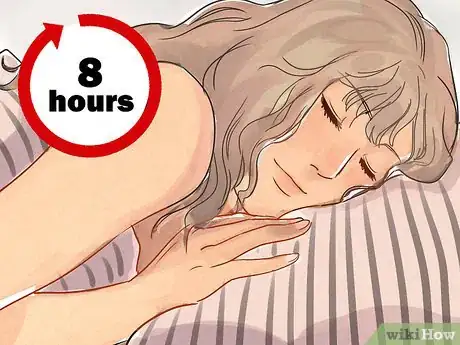

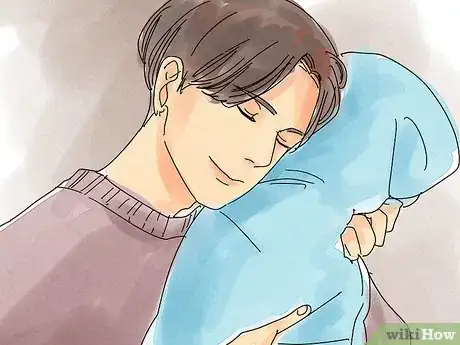
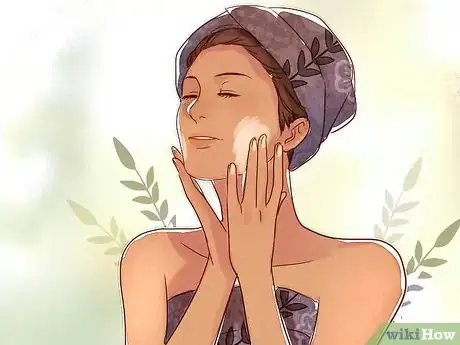



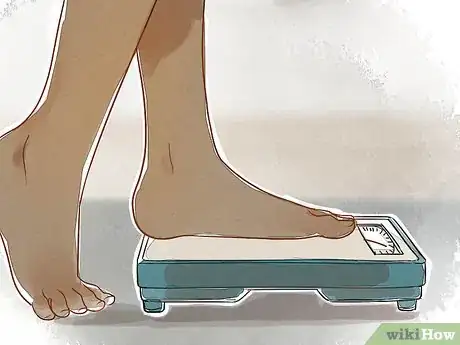
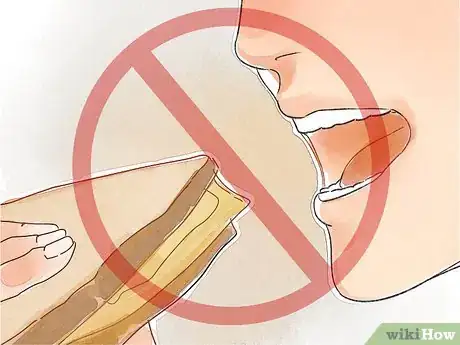

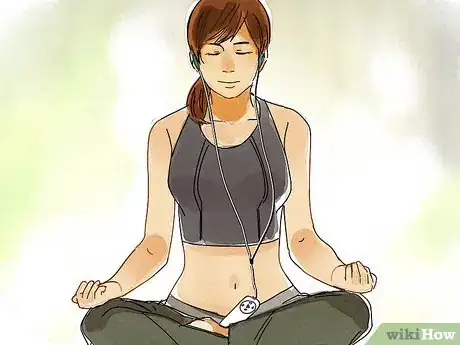


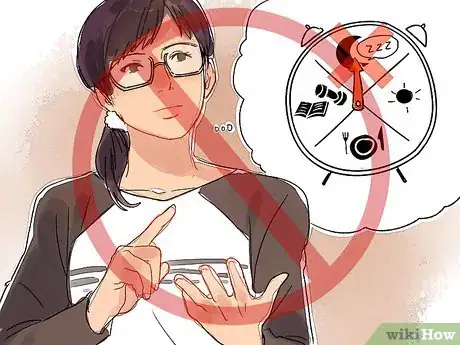

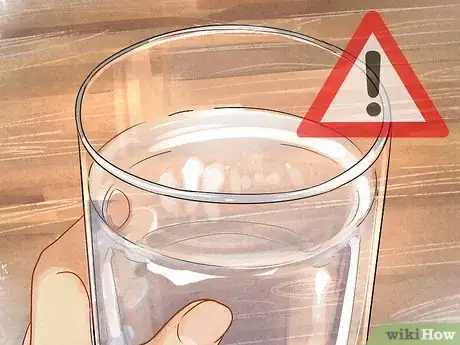

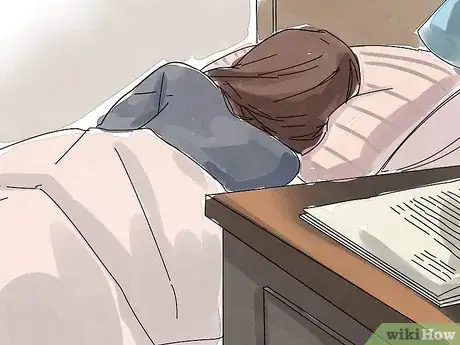

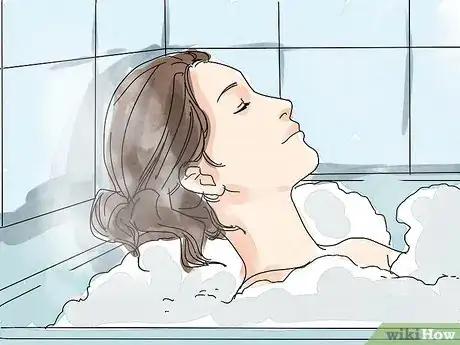

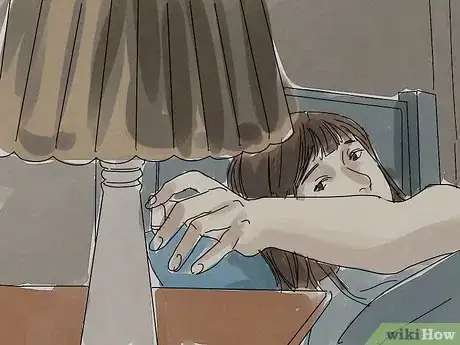
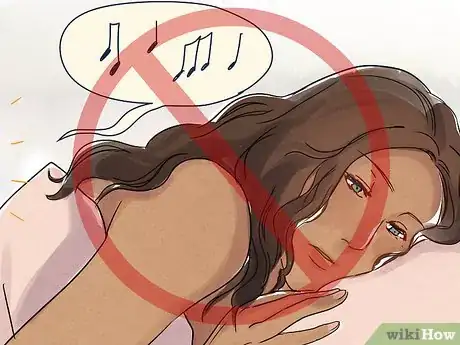

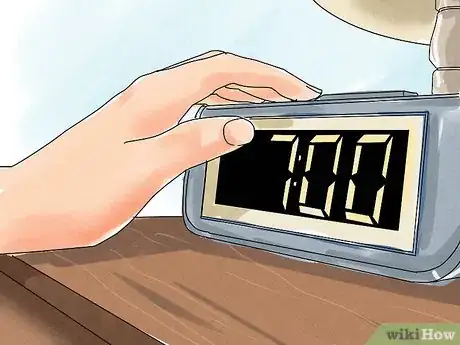
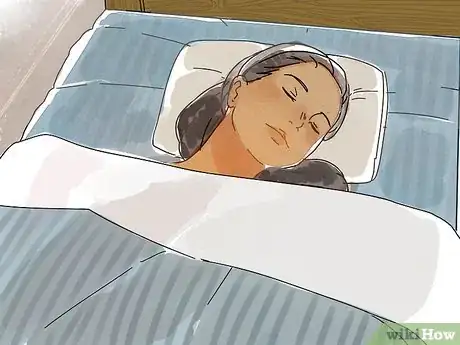




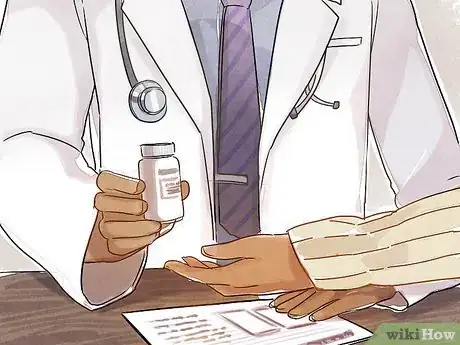
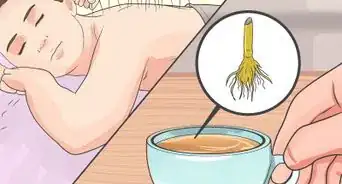











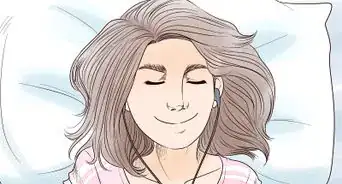
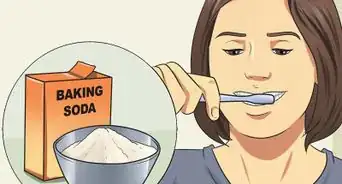








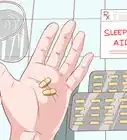

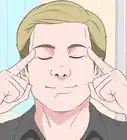



































Medical Disclaimer
The content of this article is not intended to be a substitute for professional medical advice, examination, diagnosis, or treatment. You should always contact your doctor or other qualified healthcare professional before starting, changing, or stopping any kind of health treatment.
Read More...